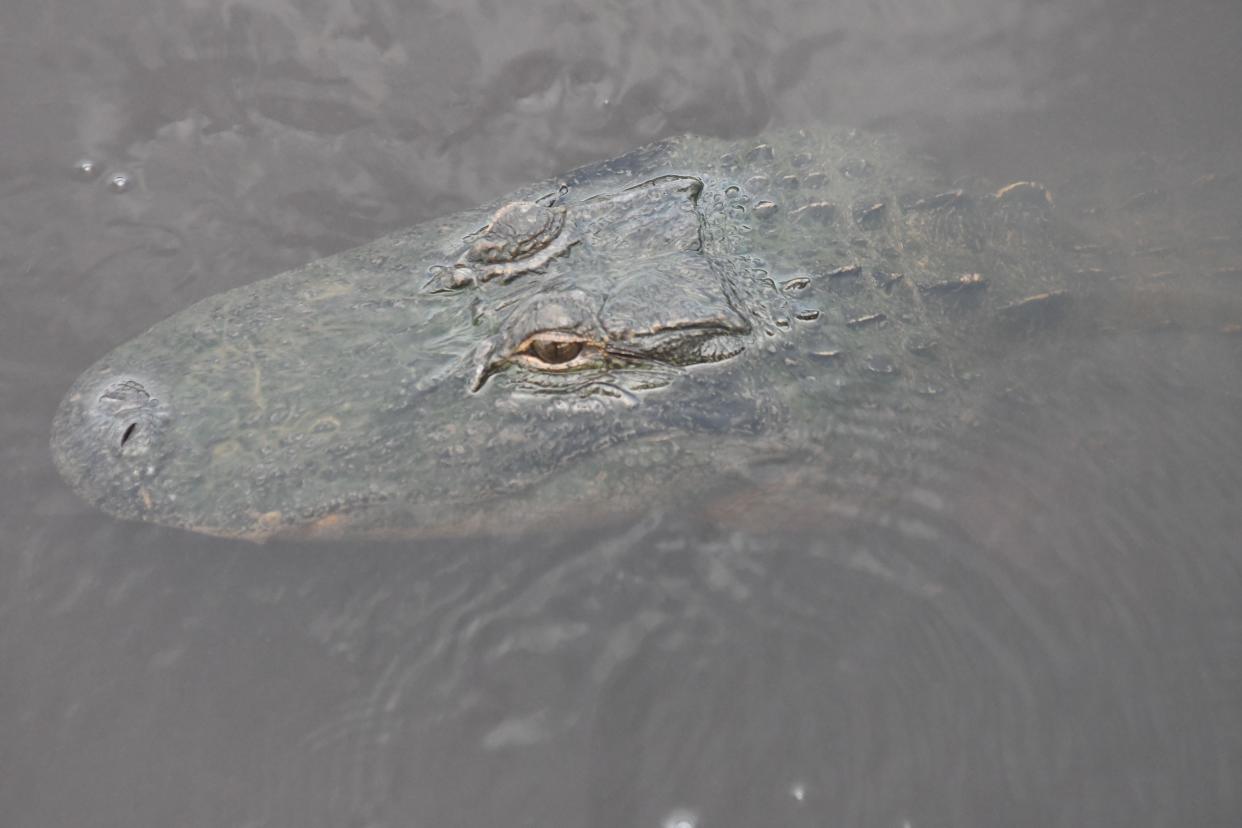Are Cape Fear River 'forever chemicals' making alligators sick?

Alligators in the Cape Fear River have been found to have higher elevations of PFAS chemicals in their blood and show genetic markers of autoimmune disease, according to a North Carolina State University study.
The findings were published in Frontiers in Toxicology last month following a study that compared blood serum in Cape Fear River alligators to those in a Lake Waccamaw reference population.
The research team was led by associate professor of biology at N.C. State University Scott Belcher. The researchers found 14 different PFAS compounds and on average twice as much PFAS in the Cape Fear alligators compared to the reference group, which was located in Columbus County about 40 miles west of Wilmington.
They also noted that PFAS concentrations decreased moving downstream from Wilmington to Bald Head Island.
The 'forever chemical'
PFAS substances — sometimes called “forever chemicals” — are a class of about 12,000 chemicals that are often used in making products water, heat or stain resistant. PFAS compounds do not naturally break down, and have been linked to cancer, birth defects, decreased immunity and other serious health issues.
For more than 30 years chemical companies Chemours and DuPont released PFAS into the Cape Fear River, which was exposed by a N.C. State University research and reported on by the StarNews in 2017.
Since then, evidence has been showing an association between exposure to PFAS and decreased autoimmune health.
“This (study) really highlights the damage that we’re seeing across the ecosystem from PFAS, and shows we’re just starting to scratch the surface of their impacts,” Belcher said in a news release. “The idea that they’re going to be around and contaminating water systems for the foreseeable future is truly shocking.”
More:NC residents face risk of health issues from GenX, PFAS exposure, new research shows
More:The results are in: Wilmington water tests PFAS-free after $43 million CFPUA project
An incredibly diverse ecosystem
The Cape Fear is North Carolina's only major river that flows directly into the Atlantic Ocean. The lands surrounding the river make up the largest watershed in the state.
In addition to alligators, a wide range of plant and animals call it home, from otters to black bear to ancient cypress, along with an incredibly diverse array of birds and fish species.
Alligators were first rumored to have been seen in the area in the 1720s when William Byrd helped survey the boundary between North Carolina and Virginia. Multiple bays, river branches, creeks, swamps and a township are named after alligators across several of the counties that make up the watershed.
Gators with unhealed wounds and lesions
The most recent study also found the Cape Fear alligator population had a number of unhealed or infected lesions, which is typically rare.
“They do get wounds, but they normally heal quickly,” Belcher said. “Seeing infected lesions that weren’t healing properly was concerning and led us to look more closely at the connections between PFAS exposure and changes in the immune systems of the alligators.”
A genetic analysis revealed the alligators had“significantly elevated levels” — 400 times that of the Lake Waccamaw gators — of the interferon-alpha immune protein, which is involved in stimulating immune response to fight off harms such as viral infections.
"In humans, long-term high expression of this gene set is an important indicator of autoimmune disease, especially lupus,"Belcher said. “When we see elevated expression of INF-α in these alligators, then, it tells us that something in these alligators’ immune responses is being disrupted.”
Impacts on humans continue to be studied
Last month, researchers from North Carolina State University’s GenX Exposure Study released their latest round of blood sampling from residents throughout the Cape Fear region and found nearly all of their more than 1,000 participants had some combination of PFAS in their blood.
Simultaneously last month, Cape Fear Public Utility Authority announced that water running from the taps in many Wilmington-area homes that it serves is now virtually free of the PFAS compounds. They say the development comes from the recent activation of eight new Granular Activated Carbon filters to remove PFAS compounds, which cost about $43 million. At an event marking the news, local officials drank the filtered water.
The alligator study follows research earlier this year from Duke University that showed low income and food-insecure Wilmington residents are catching and eating fish from the Cape Fear River tainted with PFAS.
More:Research: Who's catching and eating fish from the Cape Fear River, and is it safe?
Reporter John Orona can be reached at 910-343-2327 or jorona@gannett.com.
This article originally appeared on Wilmington StarNews: Cape Fear River alligators exposed to PFAS show autoimmune defects

